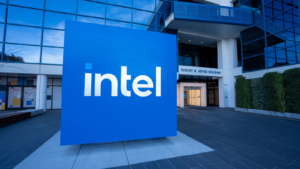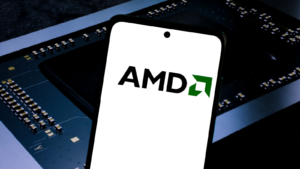
If you’re on the hunt for stocks to buy for the next bull market, look no further. Uncovering opportunities is essential in tech and finance to take advantage of the upcoming wave of industry expansion. A fresh bull market is emerging, providing an opportunity to exploit and profit from strong equities poised for considerable returns. These are the top seven companies in several industries, such as technology platforms, financial services, and semiconductors. In the future, they may lead and propel market expansion.
To begin with, each company offers a different value proposition and growth driver, ranging from semiconductor giants like the first and second ones. These companies demonstrate advances in process leadership and significant revenue development to tech conglomerates like the third one. This company claims a large and engaged user base. Furthermore, businesses such as the fourth and fifth may strategically benefit from the growing need for sophisticated computer solutions in a variety of industries.
Finally, forward-thinking fintech disruptors like the sixth and seventh are the leaders in semiconductor production and market share. They are making noteworthy progress in growing their market share and advancing tech.
Stocks to Buy for the Next Bull Market: Intel (INTC)

Intel (NASDAQ:INTC) aims to regain process leadership using technologies like Intel 3 in high-volume production. This is a significant turning point since it indicates that advanced semiconductors are now made in the U.S. Intel is advancing the field and may increase its market share. The company may continue to lead the semiconductor manufacturing industry because of its investments in state-of-the-art technologies such as Extreme Ultraviolet Lithography (EUV) and High Numerical Aperture (NA) EUV.
Moreover, Intel’s partnerships with significant companies like Microsoft (NASDAQ:MSFT), Dell (NYSE:DELL), NAVER (OTCPK:NHNCF), and others highlight the company’s strong customer relationships and market reach. Acquiring significant customers for Intel Foundry’s Intel 18A process technology, such as well-known aerospace and defense companies, confirms Intel’s capabilities and supports revenue growth projections.
Further, Intel’s data center and AI businesses also saw a 5% year-over-year (YOY) improvement. This is propelled by growing Xeon Average Selling Prices (ASPs) and increasing demand from commercial clients. In summary, despite certain challenges in industries such as Altera and Mobileye, Intel’s overall revenue base is robust, offering opportunities for growth across a broad spectrum of product lines.
AMD (AMD)

AMD’s (NASDAQ:AMD) client segment saw robust revenue growth in Q1 2024, rising a staggering 85% YOY to $1.4 billion. Sales of AMD Ryzen 8000 Series CPUs played a significant role in this evolution. Introducing new Ryzen CPUs, such as the Ryzen Pro 8000 series for corporate PCs, contributed to the segment’s sales growth. Demands from the consumer and commercial sectors were among the many that AMD’s more comprehensive range of Ryzen CPUs met.
Moreover, the client segment saw a reversal with positive operating profitability the previous year, following an operational deficit. Operating income for the sector was $86 million, against a $172 million loss during Q1 2023. Notwithstanding a consecutive decline in revenue, AMD remains optimistic about the growth prospects for the client business.
Finally, the company anticipates higher revenue growth by releasing the next-generation Ryzen CPU and collaborations enabling AI experiences on PC platforms.
Stocks to Buy for the Next Bull Market: Meta (META)

Meta’s (NASDAQ:META) sizeable and expanding user base is a key element bolstering the company’s expansion potential. Over 3.2 billion people use one or more of Meta’s apps daily, which illustrates Meta’s broad global reach and showcases its ability to reach a sizable audience across a range of geographies and demographics.
Moreover, there is a 7% increase in Family Daily Active People (DAP) from 2022. This further supports Meta’s development trajectory in terms of user engagement. This particular metric, which indicates the number of users who regularly utilize Meta’s app family, is quite significant. Hence, this indicates that Meta has maintained its present user base and attracted new ones, both necessary for a healthy and active user ecology.
Finally, Meta’s fundamental ability to maintain such a large and growing user base is based on the allure of its platforms. These include Messenger, WhatsApp, Instagram, Facebook, and Meta AI. Hence, these apps have become indispensable to users’ daily lives as they satisfy various social, communication, and entertainment demands.
NXP (NXPI)

Despite significant challenges, NXP (NASDAQ:NXPI) anticipates that demand indicators for all end sectors will progressively improve in H2 2024. Similarly, Q2 2024 sales patterns are expected to indicate potential growth opportunities. While mobile revenue growth is predicted to be in the low 20% range, industrial and Internet of Things YOY growth may be in the high single-digit percent range.
Further, to ensure optimal working capital and operational efficacy, NXP employs a rigorous inventory management approach. The company closely monitors inventory levels, and distribution inventory is maintained at a precise level of 1.6 months, by estimates. This is much below the long-term target of 2.5 months of inventory EBITDA.
Certainly, limiting inventory in the distribution channel was a conscious choice. Meanwhile, maintaining inventory on the balance sheet exemplifies prudent inventory management strategies. Hence, this approach gives greater flexibility in adapting to changing market demands and lessens the likelihood of accumulating excess inventory.
Stocks to Buy for the Next Bull Market: Arm (ARM)

Arm (NASDAQ:ARM) announced a notable increase in licensing income over projections, as $354 million in license revenue was received, an increase of 18% YOY. Strong bookings have resulted from increased investment in AI across several end sectors, raising demand for advanced Arm CPUs. The demand for Arm’s technology indicates that it is a top choice for companies searching for high-performance computing solutions, especially in AI-related applications.
Additionally, Arm is gaining market share in significant expanding industries like cloud servers and autos. By going into these markets, royalty can find new streams of income. Revenue growth was aided by the resurgence of the broader semiconductor industry, which includes smartphones.
Moreover, royalties are increasing due to the increased use of Armv9 devices. In general, Armv9 goods have royalty rates twice as high as those of equivalent Armv8 products. In Q3 2024, chips using Armv9 technology accounted for about 15% of Arm’s royalty income, up from 10% in Q2 2024. To sum up, this change aligns with Arm’s strategy of finding innovative ways to meet the needs of shifting customers and reflects technological advancements.
SoFi (SOFI)

In Q1 2024, SoFi’s (NASDAQ:SOFI) Financial Services division recorded record net sales of $151 million, an 86% YOY gain propelled by the company’s strong Money, Credit Card, and Investment products. The contribution profit margin for the category was 25%. In contrast, the Technology Platform segment produced a 33% contribution margin and $94 million in net sales, a 21% increase YOY. The category showed diverse growth opportunities and efficient product development.
While the lending division’s adjusted net revenue was constant at $325 million YOY, a noticeable shift toward net interest income led to a 64% margin. SoFi significantly rose in deposits, indicating a reduced reliance on external warehouse financing. In the first quarter of 2024, SoFi added 622,000 new members, increasing its membership base to 8.1 million — a startling 44% increase from the previous year. The financial services industry included 93% of the newly added items, suggesting a significant increase in members’ use of a wide range of products.
TSMC (TSM)

Through its planned strategic expansion across several domains, TSMC (NYSE:TSM) has proven its commitment to risk mitigation and worldwide diversification. TSMC intends to bolster its global standing and protect itself from geopolitical dangers by establishing production facilities in the U.S., Japan, and Europe. Further, to expand production capacity to meet growing demand, the business plans to build three fabs in Arizona with clean-room facilities twice as large as traditional logical fabs.
Apart from mitigating risks, TSMC’s global expansion endeavors to maintain its technological leadership and stimulate customer expansion. The decision to use state-of-the-art nodes — namely, 2- and 3-nanometer technologies — in overseas fabs demonstrates TSMC’s focus on providing its global customer base with state-of-the-art semiconductor solutions.
Finally, TSMC’s breakdown of its capital budget allocation shows how much the business values breakthrough process technologies. Thus, TSMC is dedicated to maintaining its competitive edge and supporting customers in their creative undertakings by allocating between 70 and 80 percent of the capital budget for advanced nodes.
As of this writing, Yiannis Zourmpanos held long positions in INTC, AMD, META, SOFI and TSM. The opinions expressed in this article are those of the writer, subject to the InvestorPlace.com Publishing Guidelines.





